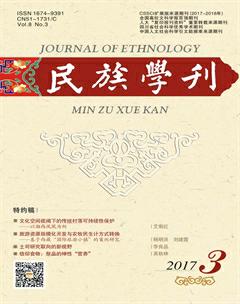The Largescale Development of Tourism Resources and the Transformation of the AgroPastoralists Means of Livelihood
Yang+Minghong+++Liu+Jianxia
Abstract:
Lulang is a place name that means “the valley of the dragon king” or “the place where celestial beings live”. As the largest project among the projects providing complementary counterpart assistance to Tibet, more than 3 billion RMB have been invested in the project of the Lulang international tourism town. It will definitely have an enormous influence on Lulang town, especially on the local agropastoralists, impacting their means of livelihood. This article analyzes the process in which the local people livelihoods changed from a selfsufficient economy which depended on farming, hunting and gathering to a lumber economy, and then to the opening of family inns. With the largescale development of tourism resources, the livelihood of the farmers and herdsman has changed hugely. However, it has also brought some negative impacts in following aspects: 1) the cultivated land and pasture lands have been taken over which has led to the reduction of agricultural productivity; and 2) the newlybuilt hotels have brought tough competition for the local family inns.
Therefore, the local government has taken some protective actions. For instances, they have: 1) Implemented a policy of providing a forest protection fee, an ecology reward, etc. in order to safeguard the local peoples livelihood from other aspects; 2) Distributed the development rights for the commercial land in Lulang town among different villages, so that each village can enjoy benefits from the project; 3) Avoided competition from the newlybuilt hotels with the local family inns, by establishing a cooperative for the family inns and enterprises.
In this regard, some measurements have been taken as follows: a. Carrying out a preferential principle for local people in the establishment of enterprises; b. Establishing a cooperative mechanism among the family inns and enterprises; c. Limiting the numbers of “quality hotels”; and d. Planning the development of family inns in a reasonable way, and assisting the villagers to improve the quality of the family inns and promote their competitive ability.
However, due to the different perspectives of the government and farmers, there are some differences between the wishes of the local government and the local agropastoralists while implementing some of the policies. For instances: 1) The governments purpose is not only to improve the selfdevelopment capability of the local people, but also to consider the official achievements derive from the project. However, the local agropastoralists believe that their selfdevelopment capability is not weak at all; 2)The government is concerned with the macro overall interests, but the agropastoralists care more about their own benefits; 3) The government wants to protect culture, but the ordinary people want to make more money in the market ; 4) The government hopes that tourism companies could take the responsibility for the development and management of the tourism resources, but the local people expect that the tourism resources could be opened to the public.
Because Lulang international tourism town is just starting its business, this article suggests that it is necessary to conduct special research on its further impact on the livelihoods of the agropastoralists and the transformation of their means of livelihood.
Key Words:tourism development; means of livelihood; Tibet
References:
Chen Quzhen.jiaoye chenmeng(Dream in the Wild). Lahsa:xizang renmin chubanshe,1999.
Lulang guoji lvyou xiaozhen guihua(Plans for Lulang International Tourism Town). http://www.doc88.com/p-2052060244479.html
Scoones.Sustainable Livehood :A Framework for Analyst.D.S.Working Paper 72. Brighton:D.S.1998.
Xu Zhimin.zhonggong zhongyang yuanzang gongzuo lunsu(On CPC Central Committees Aid for Tibet).In Journal of Jinan University,2012(3).
Yang Minghong,Liu jianxia,Zhang Yingwei.Local Participation and cultural inclusion:A Case Study on Lulang Townships Tourism Development in the Context of Partner Development Assistance.In China Tibetology,2016,Vol.2.
Yang Minghong, Zhang Yinwei.duikou yuanzang zhidu yanjiu jinzhan( Progress of the Research on Complementary Counterpart Assistance to Tibet). In Journal of Ethnology,2016(4).
Yang Minghong,Xiang Xiaofeng.duikou yuanzang de “huaxin moshi”diaocha yu fenxi(An Investigation and Analysis of the “Huaxin Model”of Complementary Counterpart Assistance to Tibet). In Journal of Ethnology,2015(1).

